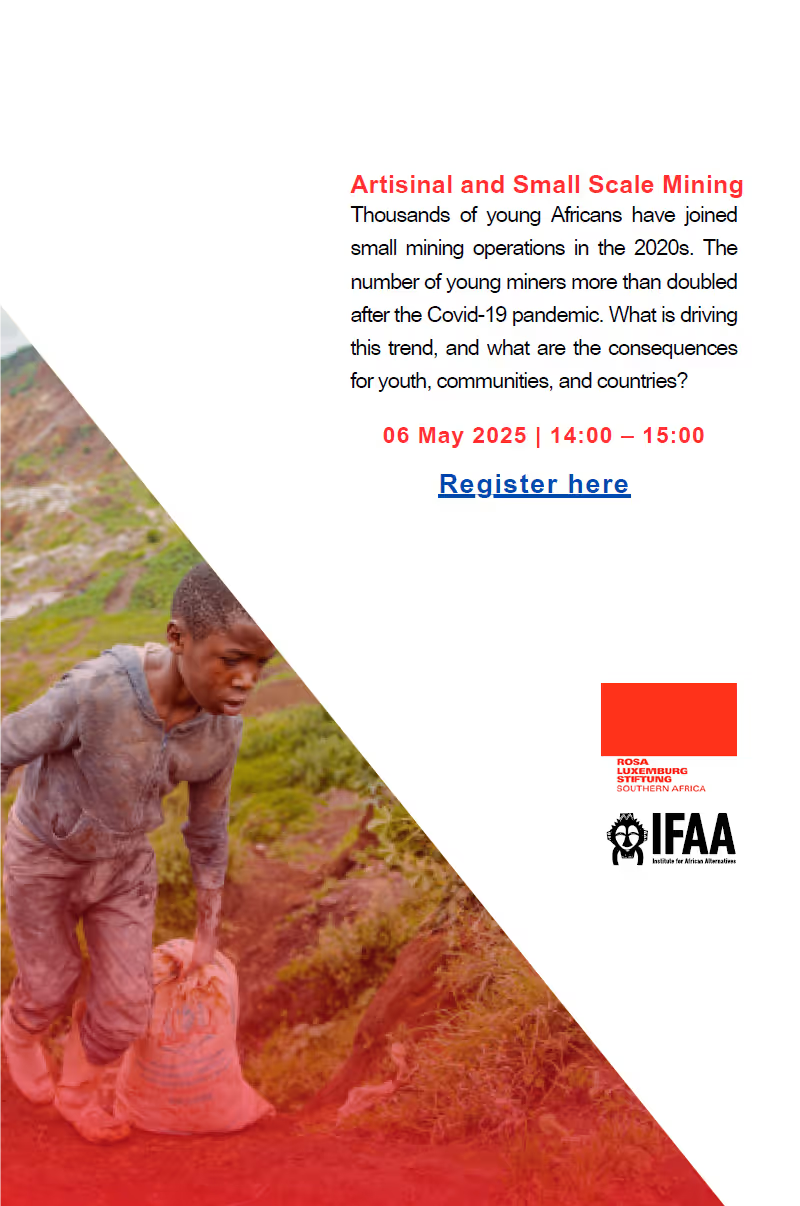
Artisanal and Small-Scale Mining
By
RLS
Small mining operations are witnessing an unprecedented growth in the post-Covid 19 context. Much of this growth, like the spread of opioids across the continent, went largely unnoticed until the Galamsey and then the Zama Zama episodes made headlines in Ghana and South Africa. With more media attention, there has also been more discussions about what exactly to call this activity: artisanal mining, small-scale mining, small-scale mechanised mining, illegal mining. Small mining operations exist all over the continent, in countries like Senegal, Guinea, Burkina Faso, Gambia, Mali, Ghana, Cameroon, Sudan, Zimbabwe and South Africa. It typically involves young people, and NGOs have documented child labour as well as trafficking of women for sex work in most of these operations.
These mining operations are not always necessarily sporadic phenomena as people speculate. Very often, geologists, importers, buyers and many other important links are involved. There are also ‘investors’ who supply generators, fans, ropes and dangerous chemicals. For illustration purposes, INTERPOL recently seized 150 kgs of cyanide, 325 kgs of active charcoal, 14 cylinders of mercury with an estimated value of over USD 100,000, 20 litres of nitric acid,57-litre containers of sulfuric acid, 10 kilogramme of cocaine and almost 7,000explosive devices in West Africa.
Importantly too, mining operations have sub-regional dimensions in DRC and South Africa. In South Africa, Zama Zamas from all countries in the sub-region have been identified in the mines. 2000 people were arrested in April 2025 alone. In East Africa, the DRC, which has become ground zero for the just energy transition, relies on millions of artisanal miners, including women and children) to operate coltan and other mines. The DRC has 70% of the world’s cobalt, about 10% of the world’s Coltan (Columbite-tantalite), other rare earths (monazite, euxenite), gold (Kivu and Ituri), uranium, copper and diamonds.
This webinar is part of a joint RLS-RSA-IFAA series. Other parts of theseries include a webinar on financing the just transition, the 2025 summerschool of political ecology, and an ecofeminism school. IFAA organised awebinar on artisanal/illegal mining in April 2025. If you are interested inwatching it again, please contact Rachael.
Speaker:
Dr. Kennedy Maduna.
Date:
06 May 2025
Time:
14:00 – 15: 00 SAST
Register for the event here
Contact people
Roland Ngam: Roland.ngam@rosalux.org
Rachael Nyirongo: rachelnyirongo@gmail.com



.png)

